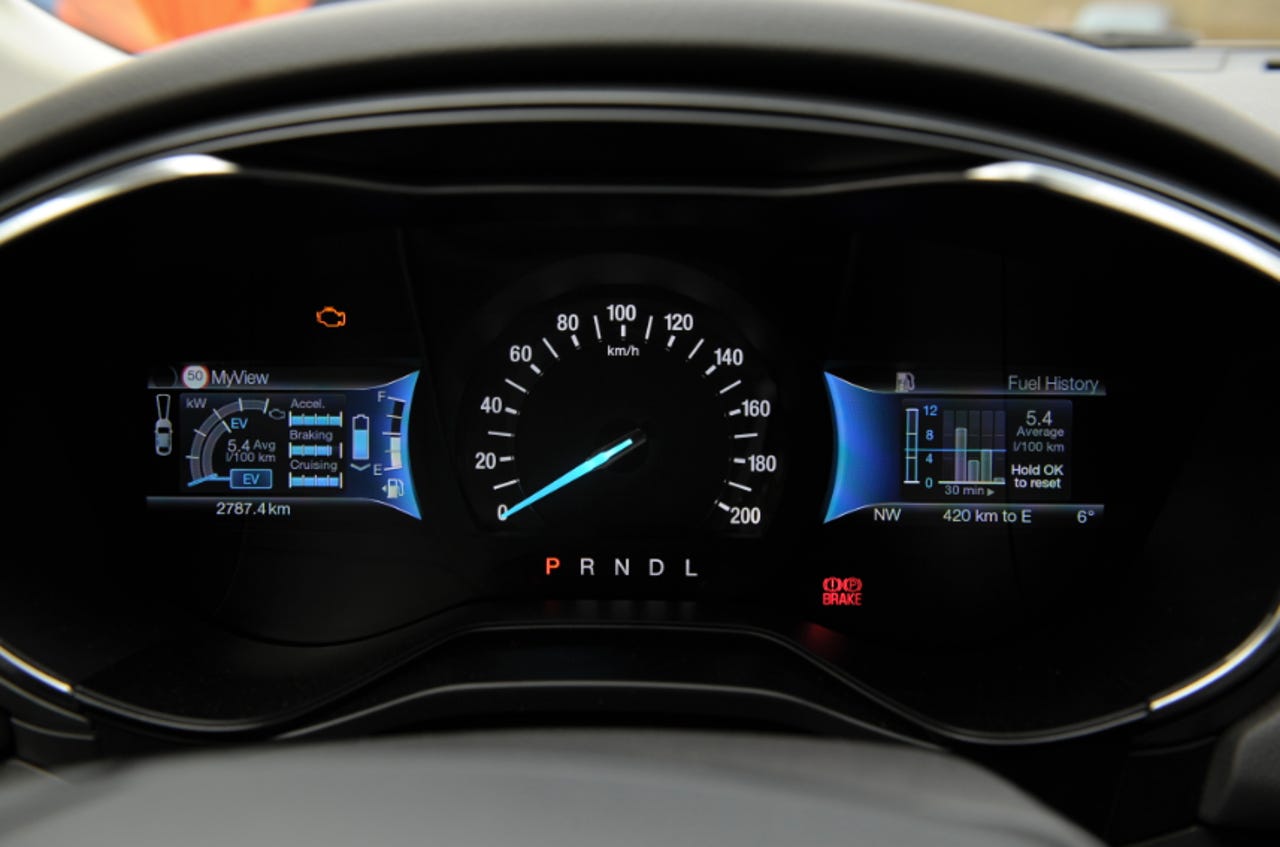Connected car tech trends to watch in 2015 and beyond


To name but a few, chip designers such as Nvidia are enjoying new revenue streams as their creations are used to power infotainment dashboards, Google is rumored to be working on an Android-based vehicle system to take on Apple's CarPlay, and Microsoft revealed its "Windows in the Car" concept earlier this year.
What are the major trends in the connected car industry we've seen this year, and what are we likely to see in 2015?
Infotainment and mobile
The idea of using our mobiles to stay in touch on the road, bring up maps and listen to playlists is tempting -- but in many countries, operating a handset is considered dangerously distracting and has been banned. However, there are ways to make handset operation at least a little bit safer -- such as using hands-free Bluetooth connectors and voice commands. Another way found in the next generation of vehicles is the infotainment dashboard -- although distraction rates are debatable -- which connects a car and handset, giving drivers access to a number of applications and services.
A number of technology companies have shaken hands with automakers to bring handset compatibility into our cars -- ranging from Apple's CarPlay to home-grown solutions including Jaguar's justDrive and Hyundai, which uses Intel technology in its infotainment dashboards.
Apps, apps everywhere
Sensing there is profit to be made in the fledgling infotainment industry, developers are releasing apps suitable for drivers. From weather reports to community-driven traffic alerts and mapping, we are likely to see this trend continue as both automakers and tech firms push the connected car forward.
Monitoring new drivers
The first time a teenager buckles their seatbelt on and drives off into the sunset can worry parents. To tackle these concerns, Hyundai has developed the Blue Link Vehicle Safeguards Alerts In-Vehicle App for the 2015 Azera, with other vehicles on the horizon. The free app connects a Hyundai car to a parent's smartphone, and allows parents to monitor the car's use, set speed limits, hours of operation and movements. If a child goes beyond a speed limit or takes the car out without permission, a text, email or both are sent to warn the parent.
As the connected car becomes more common, Hyundai is unlikely to remain the sole car manufacturer to develop such surveillance apps.
Fuel efficiency
As utilized by automaker Ford, fuel economy technology can enable drivers to rely less on traditional fuel by changing their driving habits. As demonstrated at Ford's EcoDrive event in Germany last month, indicators on a car dashboard can be used to calculate fuel use in real-time -- and driving behavior can be altered as a result. There are ways to cut down on fuel consumption, including losing weight in the vehicle, rolling a car and changing gears promptly, but having an indicator reminding you of this can cut overall fuel use and costs.
Covering the blind spot
As handsets with built-in cameras became commonplace, it is no wonder our vehicles have begun to follow suit. The dreaded "blind spot" and need to twist and turn when reverse parking is now a thing of the past in some vehicles -- such as the latest Chrysler models -- due to inbuilt cameras and sensors. When the car senses it is being parked, the camera switches on and shows the driver the back view on the car's front dashboard.
Digital diagnostics
Infotainment, mobile devices and visual cues for drivers are all useful, but vehicle maintenance -- and lack thereof -- can result in undue stress and travel disasters. Automakers are tackling this issue by connecting cars to the Internet and their own manufacturing systems, linking up sensors to check everything from tire pressure to brake condition. The dashboard warning light may not be enough anymore, and connected cars can warn drivers before minor problems become major issues.
e-Call
Under new European laws, all new cars on the road must be equipped with sensors that automatically call emergency services in the event of an accident. Dubbed eCall, European legislators want to ensure that eventually all new, modern vehicles will be equipped with these types of sensors through 2015 - 2018.
Driverless cars
Fully automated, driverless cars are unlikely to enter the mainstream for some time, but this hasn't stopped tech giants such as Google and carmakers including Volvo from experimenting with such technology. More and more car manufacturers are developing smart driving systems -- such as Mercedes-Benz's "Intelligent Drive." Designed to reduce accident rates, the system can take control and steer, brake and accelerate on its own when speeds are less than 37 mph through the use of sensors, cameras and a custom radar system.
Beyond the car
It is worth remembering that cars are not the only means of transport that could benefit from Internet connection and new technology in general. We are likely to see the same concepts manifest themselves in everything from lorries to motorbikes -- a tracking system for corporate vehicles to Bluetooth and GPS installation in motorbikes. To this end, products are already beginning to emerge in the market, including the Skully helmet which utilizes Bluetooth, GPS and rear-view cameras to make riding smarter.
Disclaimer: Attendance at the EcoDrive event in Germany was sponsored by Ford.
Related:
- Nvidia's Tegra chip powers new Honda connected car infotainment system
- Connected car tech to watch in 2014